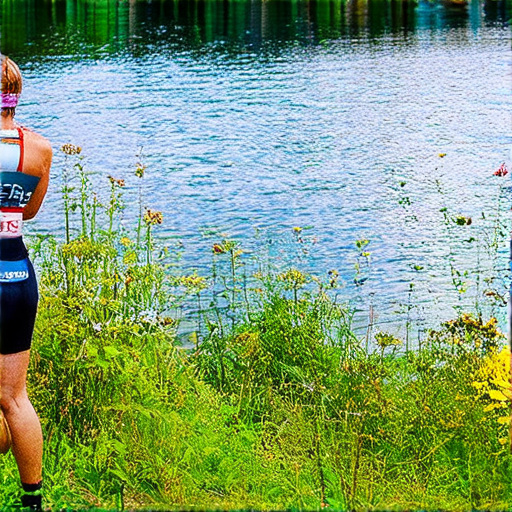As athletes push their bodies to new limits, it’s easy to overlook one crucial aspect of performance: athlete health and wellness. The physical demands of sports can take a toll on even the fittest individuals, leading to injuries, burnout, and decreased motivation. However, by prioritizing holistic training and mental support strategies, athletes can optimize their health and wellness, achieving peak performance and a longer, healthier career.
What is Athlete Health?
Athlete health refers to a state of optimal physical, mental, and social well-being that enables athletes to perform at their best in their respective sports.
- Physical Well-being: This includes factors such as injury prevention, recovery, and overall physical fitness, which are essential for athletes to perform optimally.
- Mental Well-being: Mental health plays a crucial role in athlete performance, encompassing aspects such as stress management, emotional regulation, and resilience.
- Social Well-being: Social connections and relationships with teammates, coaches, and family members can significantly impact an athlete’s overall well-being and performance.
Key Components of Athlete Health
- Nutrition and Hydration: Adequate nutrition and hydration are vital for athletes to maintain energy levels, support muscle function, and aid in recovery.
- Training and Recovery: A balanced training program combined with adequate rest and recovery time is essential for athletes to avoid burnout and prevent injuries.
- Mental Preparation: Developing coping skills, managing stress, and cultivating a positive mindset are critical components of mental preparation for athletes.
- Sleep and Relaxation: Getting sufficient sleep and engaging in relaxation techniques, such as meditation or deep breathing, can help athletes manage stress and recover from intense training sessions.
Importance of Athlete Health
Athletes who prioritize their health and well-being are better equipped to handle the demands of competition, reduce their risk of injury, and maintain a high level of performance over time.
By focusing on physical, mental, and social well-being, athletes can optimize their performance, enhance their overall quality of life, and achieve their goals in their respective sports.
At Keep Your Eye on the Ball, we understand the importance of athlete health and offer a range of resources and tools to support athletes in achieving their full potential.
Most Common Illnesses in Athletes
We understand the importance of staying healthy and performing at our best, whether we’re professional athletes or weekend warriors.
-
Overuse Injuries
One of the most common illnesses in athletes is overuse injuries, which occur when repetitive stress and strain cause damage to muscles, tendons, and ligaments.
- Shin splints
- Tendinitis
- Stress fractures
-
Upper Respiratory Tract Infections (URTIs)
URTIs, such as the common cold and flu, can spread quickly through teams and affect athletes’ ability to perform at their best.
- Symptoms may include fever, cough, sore throat, and fatigue
- Prevention involves good hygiene, vaccination, and getting enough rest
-
Muscle Strains
Muscle strains occur when muscles are stretched or torn, often due to sudden movements or overexertion.
- Achilles tendonitis
- Hamstring strains
- Quad strains
-
Dehydration and Heat-Related Illnesses
Dehydration and heat-related illnesses, such as heat exhaustion and heat stroke, can occur when athletes don’t drink enough water or take regular breaks in hot weather.
- Signs of dehydration include dark urine, headaches, and dizziness
- Prevention involves drinking plenty of water, taking regular breaks, and avoiding strenuous activity during peak sun hours
At Keep Your Eye on the Ball, we emphasize the importance of injury prevention, proper training, and adequate recovery time to minimize the risk of illness and stay healthy throughout the season.
Staying Healthy as an Athlete
As an athlete, taking care of your physical and mental well-being is crucial for optimal performance and overall health.
-
Nutrition and Hydration
- Eat a balanced diet rich in fruits, vegetables, whole grains, lean proteins, and healthy fats.
- Stay hydrated by drinking plenty of water before, during, and after exercise.
- Avoid sugary drinks and foods high in salt and sugar.
-
Physical Conditioning
- Incorporate strength training exercises into your routine to improve muscle mass and bone density.
- Engage in regular cardio activities such as running, cycling, or swimming to enhance cardiovascular fitness.
- Flexibility and mobility exercises can help prevent injuries and improve range of motion.
-
Mental Preparation
- Develop a positive mindset through meditation, deep breathing exercises, or yoga.
- Set realistic goals and celebrate small victories to boost motivation and confidence.
- Get enough sleep each night to allow your body to recover and recharge.
-
Recovery Techniques
- Stretch after exercise to reduce muscle soreness and improve flexibility.
- Use foam rolling or self-myofascial release techniques to aid in recovery.
- Take rest days as needed to allow your body to repair and adapt.
-
Seek Professional Help
- Consult with a registered dietitian or nutritionist to develop a personalized meal plan.
- Work with a coach or trainer to create a customized training program.
- Visit a healthcare professional if you experience persistent pain or injury.
By prioritizing these essential aspects of health and wellness, you’ll be better equipped to perform at your best and enjoy a long, successful career as an athlete.
Fixing Athlete Mental Health: A Comprehensive Guide
We understand the importance of prioritizing mental well-being in athletes, which is why we’ve compiled a list of effective strategies to help you overcome common challenges.
-
1. Encourage Open Communication
-
2. Foster a Supportive Team Environment
-
3. Develop Coping Mechanisms
-
4. Prioritize Self-Care
-
5. Address Performance Pressure
-
6. Provide Access to Mental Health Resources
-
7. Lead by Example
-
8. Monitor and Manage Injuries
-
9. Fostering Resilience
-
10. Continuously Evaluate and Improve
As an athlete, it’s essential to feel comfortable discussing your emotions and concerns with your coaches, teammates, and family members. Create a safe space for open communication, and encourage others to do the same.
A positive team culture can significantly impact an athlete’s mental health. Promote empathy, understanding, and respect among teammates, and encourage them to look out for one another.
Help athletes develop healthy coping mechanisms, such as meditation, deep breathing exercises, or journaling, to manage stress and anxiety.
Encourage athletes to engage in regular self-care activities, such as exercise, healthy eating, and sufficient sleep, to maintain their overall well-being.
Help athletes recognize and manage performance pressure by setting realistic expectations, celebrating small victories, and focusing on progress rather than perfection.
Mental health professionals, such as sports psychologists or counselors, can offer valuable guidance and support to athletes struggling with mental health issues.
Coaches and leaders play a significant role in promoting mental health awareness and encouraging athletes to prioritize their well-being. Demonstrate a commitment to mental health by practicing what you preach.
Injuries can have a significant impact on an athlete’s mental health. Work closely with medical professionals to develop injury management plans and provide emotional support during recovery.
Resilience is critical for athletes to bounce back from setbacks and maintain a positive mindset. Teach athletes techniques to develop resilience, such as reframing negative thoughts and practicing gratitude.
Regularly assess the effectiveness of your mental health initiatives and make adjustments as needed. Stay up-to-date with the latest research and best practices to ensure you’re providing the best possible support for your athletes.
What is the Most Common Mental Health Issue in Athletes?
The world of professional sports is marked by high-pressure competitions, grueling training regimens, and intense scrutiny from fans, coaches, and media.
-
Athletes often struggle with feelings of burnout, depression, and anxiety due to the relentless pursuit of perfection.
-
According to various studies, approximately 35% of elite athletes experience symptoms of depression, while around 25% suffer from anxiety disorders.
Causes of Mental Health Issues in Athletes:
-
Unrealistic Expectations:
-
Coches, fans, and teammates may place excessive pressure on athletes to perform, leading to feelings of inadequacy and stress.
-
Athletes may feel compelled to push through injuries or exhaustion to meet these expectations, exacerbating mental health concerns.
-
-
Lack of Support:
-
Athletes may feel isolated or unsupported in their struggles with mental health, making it difficult to seek help or open up about their emotions.
-
This lack of support can lead to feelings of shame, guilt, or embarrassment, further perpetuating mental health issues.
-
-
Inadequate Training and Nutrition:
-
Inadequate training programs or poor nutrition can contribute to physical and mental fatigue, increasing the risk of mental health issues.
-
Athletes who neglect their physical needs may experience decreased motivation, mood disturbances, and cognitive impairment.
-
Prevention and Treatment:
Fortunately, there are steps athletes can take to prevent and manage mental health issues:
-
Prioritize self-care and engage in regular exercise, meditation, or mindfulness practices to reduce stress and promote relaxation.
-
Seek support from trusted friends, family members, or mental health professionals to discuss emotions and develop coping strategies.
-
Focus on developing a positive body image and self-esteem, rather than striving for perfection or external validation.
Resources:
For athletes struggling with mental health issues, consider reaching out to organizations like the National Alliance on Mental Illness (NAMI) or the American Psychological Association (APA).
Additionally, many sports teams and leagues offer mental health services, counseling, or support groups specifically designed for athletes.
By prioritizing mental well-being and seeking help when needed, athletes can better navigate the pressures of competition and maintain a healthy, balanced lifestyle.
Overcoming Athlete Burnout
As an athlete, I’ve experienced firsthand the physical and mental exhaustion that comes with intense training and competition.
- Taking a Break
- Reassessing Goals and Priorities
- Seeking Support
- Focusing on Self-Care
Rest is essential for recovery, and taking a break from training can help alleviate burnout symptoms.
Reflecting on my goals and priorities can help me identify what’s causing burnout and make necessary adjustments.
Talking to coaches, teammates, or a sports psychologist can provide valuable insight and support during challenging times.
Maintaining a healthy diet, staying hydrated, and getting enough sleep are crucial for overall well-being and performance.
Understanding the Causes of Burnout
Burnout can result from various factors, including:
- Overtraining
- Lack of Balance
- Pressure to Perform
- Poor Time Management
Prolonged periods of intense training without adequate rest and recovery can lead to physical and mental exhaustion.
Inadequate time for rest, relaxation, and social activities can contribute to burnout.
Excessive pressure to win or meet expectations can cause stress and anxiety, leading to burnout.
Inefficient use of time can lead to increased stress levels and decreased motivation.
Preventing Burnout
By recognizing the signs of burnout and taking proactive steps, athletes can prevent its onset and maintain optimal performance.
- Setting Realistic Goals
- Developing a Training Plan
- Practicing Mindfulness
Establishing achievable goals and breaking them down into manageable tasks can help reduce stress and increase motivation.
Creating a structured training plan can help athletes stay organized and focused, reducing the risk of burnout.
Mindfulness techniques, such as meditation and deep breathing, can help athletes manage stress and maintain a positive mindset.
At Keep Your Eye on the Ball, we understand the importance of prioritizing athlete well-being and performance. By incorporating these strategies into your training routine, you can overcome burnout and achieve your goals.





0 Comments